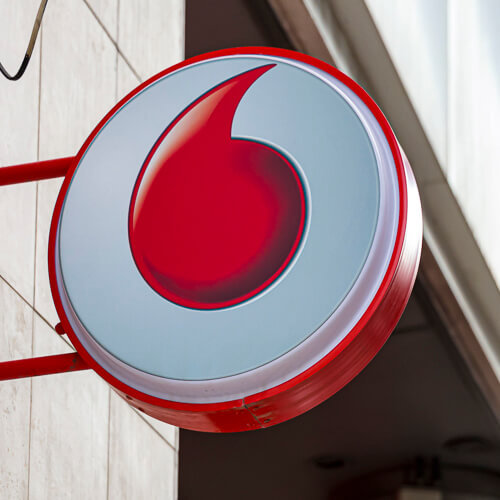
Vodafone Group finally revealed its partners of choice for Vantage Towers, and like rival Deutsche Telekom has opted to go with private equity buyers rather than an industry player such as Cellnex.
As speculation over recent days suggested, the UK-based operator group has agreed a tie-up with Global Infrastructure Partners (GIP) and KKR. It has created what will ultimately be a 50:50 joint venture with the two investors that in turn will hold Vodafone’s 81.7% stake in the towerco.
For Vodafone, a key attraction of such a deal is that it will retain "co-control" of the tower assets, which had been one of its stated aims. The new JV will also make a voluntary takeover offer for the outstanding Vantage Towers shares. The deal is expected to close in the first half of 2023 following regulatory clearance, after which the partners "will consider" delisting Vantage Towers from the Frankfurt Stock Exchange.
Figure 1:  The UK operator forms 'co-control' partnership with GIP and KKR for Vantage Towers.
The UK operator forms 'co-control' partnership with GIP and KKR for Vantage Towers.
(Source: l_martinez/Alamy Stock Photo)
Vodafone expects to make a minimum of €3.2 billion (US$3.21 billion) from the deal based on a 100% take-up of the takeover offer, while maximum cash proceeds will be between €5.8 billion ($5.81 billion) and €7.1 billion ($7.11 billion). The plan is to use the proceeds to reduce debt.
Vantage Towers operates around 83,000 sites in ten countries. The company was founded in 2020 and is headquartered in Düsseldorf, Germany. Notably, the new partners do not appear to have been deterred by reports indicating that Germany-based operator 1&1 blames Vantage Towers for delays in the rollout of its own network.
Moving pieces
The Vantage Towers deal represents a further move in what has evolved into a giant European chess game. Only recently, Deutsche Telekom selected Canadian investment firm Brookfield Asset Management and US-based infrastructure investment firm DigitalBridge as its new core strategic tower partners in Europe.
The deal, which must still get past regulators, will see the two partners secure a 51% stake in GD Towers, the entity Deutsche Telekom created in 2019 for its European tower assets.
Currently, there are five large-scale tower players in Europe: American Tower Company (ATC), Cellnex, GD Towers, Orange Group's Totem, and Vantage Towers. In recent years, Vodafone Group CEO Nick Read has predicted that the region will end up with three large players in the tower market.
Want to know more? Sign up to get our dedicated newsletters direct to your inbox.
Cellnex and ATC clearly lost out in the recent Deutsche Telekom and Vodafone deals, but both infrastructure companies have already secured sizable assets in the region.
For instance, last year ATC acquired 30,722 towers in several countries from Telefónica's Telxius unit for €7.7 billion ($7.71 billion). Cellnex has also picked up tower assets in multiple European countries over the years. In November 2020, it agreed to acquire CK Hutchison's 24,600 sites in Austria, Denmark, Ireland, Italy, Sweden and the UK.
Meanwhile, telcos including Telefónica have stepped out of the tower ownership market altogether. Liberty Global-owned Belgian operator Telenet agreed to sell the entirety of its towers and passive infrastructure for an all-cash fee of €745 million ($746.6 million) to DigitalBridge. Over in Italy, Telecom Italia is gradually whittling down its stake in Inwit, a tower joint venture with Vodafone.
Related posts:
— Anne Morris, contributing editor, special to Light Reading
Read more about:
EuropeAbout the Author(s)
You May Also Like




.jpg?width=300&auto=webp&quality=80&disable=upscale)







